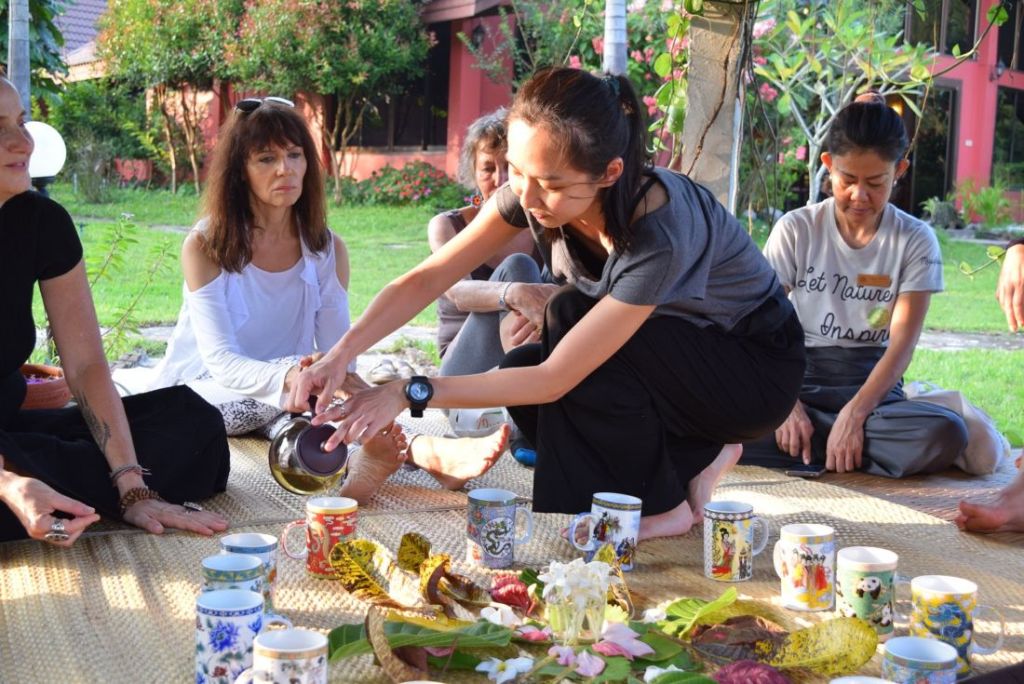CHIANG RAI – For years, Chiang Rai province thrived as Chinese and visitors from all over—families sampling khao soi, lone explorers walking to the White Temple—brought energy and variety to once-quiet streets. Locals grew used to full guesthouses near the Mekong, lively night markets, and the steady work that came with crowds, but this year tells a different story.
Many hotels now sit empty, bookings fall through, and guides linger without clients. The reason is a sharp shift in where Chinese tourists spend their holidays. Once loyal to Thailand, they now choose Vietnam in growing numbers, as worries over abductions, scams, and unrest make Thailand feel risky.
This drop hurts Thailand’s economy deeply. In 2019, before the pandemic, more than 11 million Chinese tourists visited, supporting jobs at hotels, street stalls, and animal parks, especially in the north. By September 2025, only 3.23 million had arrived, and just 5 million are expected by year’s end. That is a quarter fewer than in 2024.
Next door, Vietnam hosts a travel boom. In the first eight months of 2025, foreign arrivals neared 14 million, with Chinese visits rising by 44 percent from the previous year. Vietnam’s efforts, from easy visas to extra flights, draw record numbers.
Hanoi even attracted more Chinese tourists than Bangkok early in the year. Analysts expect Vietnam to break its past visitor record and reach 22.6 million international trips by the end of 2025, boosted by its safety reputation and welcoming rules.

Chinese Tourism Dropping
This change means more than lower hotel bookings. Thailand depends on visitors for close to a fifth of its income, supporting millions of jobs. Across the country, the total number of foreign arrivals dropped by 7 percent through September. The fall in Chinese visits is sharper, down 35 percent.
In Chiang Rai, room bookings in busy times once hovered near 80 percent but now stay under 60 percent. Small business owners have slashed prices just to fill beds. “We used to see Shanghai tour groups every weekend,” shares Noi, a veteran local guide. “Now, they tell me Vietnam feels safer.”
Safety fears have grown since early 2025, and Chinese travellers talk about them online. Shocking crimes top the headlines in China, often painting Thailand as unsafe. In January, Chinese actor Wang Xing was lured to Bangkok for a fake casting call, then kidnapped and sent to Myanmar.
He was rescued after a week, but his ordeal led to 500,000 online searches on how to cancel Thailand holidays. Before that, Thai soldiers in Tak rescued two Chinese tourists abandoned during a trafficking attempt. In April, five visitors were taken from a Bangkok hotel by criminals posing as police and held for ransom.

Scam Gangs Targeting Tourists
These cases are part of a bigger pattern, with gangs targeting visitors around Thailand’s borders. Many of these scams start with fake job offers or auditions, drawing victims to Myanmar or Cambodia, where gangs force them to run online frauds.
This year, police in Thailand broke up more than 100 of these operations, rescuing hundreds, but criminal groups adapt, using Thai tourist visas and corrupt links to blend in at places like Pattaya and Chiang Mai.
“These are our own people tricking each other,” a Beijing travel blogger told her followers after taking her group to Da Nang. “In Vietnam, you can relax in the markets instead of worrying.”
Scams take many forms here. Fraud schemes known as “pig-butchering,” aimed at stealing money through fake relationships, have cost victims two billion US dollars in 2025. Criminals target Chinese visitors through apps such as WeChat.
Stories from Chiang Rai show how a group from Guangdong lost half a million yuan after a tuk-tuk driver drugged them and stole their phones. Surveys show only 19 percent of Chinese tourists feel safe in Thailand, compared to 22 percent in Vietnam and nearly 80 percent in Singapore.
Flight cancellations during the Lunar New Year cost the industry over one billion US dollars. Even high-profile entertainers, such as Eason Chan, have cancelled tours in Bangkok, putting safety first.
 Political Instability
Political Instability
Political unrest adds another layer of worry. Since Prime Minister Paetongtarn Shinawatra’s shaky coalition formed in 2024, Thailand has faced protests and scandals. A leaked call between her and Cambodia’s Hun Sen over border issues led to mass protests in June.
By August, the Constitutional Court removed her from office, throwing the country into uncertainty. Demonstrations in Bangkok and the north, some turning violent, reminded many of past political crises.
Tourists see the effects in daily life. Tear gas drifts near historic sites, police checks slow travel to Phuket, and the old welcoming spirit of the “Land of Smiles” feels distant. The World Bank cut Thailand’s 2025 growth outlook to 1.8 percent, citing the ongoing unrest and its impact on travel, which dipped another 12 percent this year.
Vietnam, on the other hand, benefits from calm politics and special ties with Chinese provinces. Travellers there enjoy lower prices, trouble-free digital payments, and none of Thailand’s recent crime headlines.
The drop in tourists is clear in the numbers. Foreign arrivals fell more than 7 percent by early September, and expected income from tourism is now below last year’s. The famous Mae Fah Luang Garden in Chiang Rai, which welcomed 200,000 Chinese guests last year, reported a 40 percent drop, affecting local farmers and sellers.
Across the country, hotel earnings are likely to fall, and bed occupancy hovers around 60 percent in tourist hotspots. The strong Thai baht adds to travel costs, making local dishes more expensive than in competing destinations. Travel industry leaders admit that Vietnam’s appeal is tough to match right now, with its steady prices and frequent flights.

Chiang Rai Businesses Doubtful
Despite the slump, Thai authorities have not given up. Both the current government and the former prime minister boosted security, pushed new safety apps, and launched joint operations with China to shut down fraud networks. The Thailand Tourist Police launched a 24-hour app offering alerts, translation, and a panic button, reaching half a million downloads by summer.
International cooperation has seen large-scale operations, like Operation Seagull, resulting in arrests and rescues across Southeast Asia. Border checks increased, and drones are banned near sensitive areas to block trafficking. Boosted promotions target Chinese visitors with discounts and special perks, trying to change minds through positive stories and safer experiences.
Still, many in Chiang Rai’s shops and cafés remain doubtful. Vietnam’s new visa-free travel, extra flights, and steady leadership keep Chinese tourists coming, with retail sales jumping as a result. Malaysia also passed Thailand for total arrivals earlier this year. At the moment, Thailand’s political path is unclear, change feels slow, and more unrest could start again.
As the lights come on along the Mekong, Lan, a Vietnamese expat selling pho in Chiang Khong, shares her view. “In Vietnam, people feel safe. You can visit temples and beaches and just enjoy yourself,” she says, serving soup to a single backpacker.
Her words stay with many here. Thailand needs to tackle crime, settle its politics, and revive the warmth that once filled every street. For now, Vietnam enjoys the benefits of this shift, but people here believe that with honest effort, the good times and bright smiles will return before empty rooms become permanent.
Related News:
Chinese Organized Crime Becoming a Growing Threat to Thailand’s Tourism














